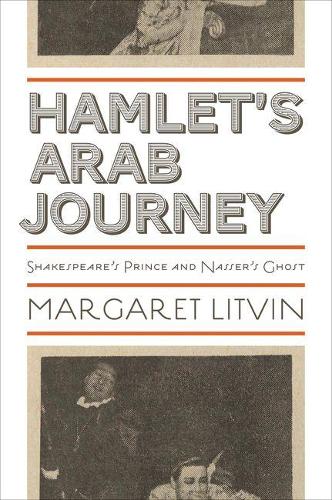
Hamlet's Arab Journey: Shakespeare's Prince and Nasser's Ghost
(Hardback)
Publishing Details
Hamlet's Arab Journey: Shakespeare's Prince and Nasser's Ghost
By (Author) Margaret Litvin
Princeton University Press
Princeton University Press
2nd January 2012
United States
Classifications
Tertiary Education
Non Fiction
809
Physical Properties
Hardback
296
Width 152mm, Height 235mm
539g
Description
For the past five decades, Arab intellectuals have seen themselves in Shakespeare's "Hamlet": their times "out of joint", their political hopes frustrated by a corrupt older generation. "Hamlet's Arab Journey" traces the uses of "Hamlet" in Arabic theatre and political rhetoric, and asks how Shakespeare's play developed into a musical with a happy ending in 1901 and grew to become the most obsessively quoted literary work in Arab politics today. Explaining the Arab "Hamlet" tradition, Margaret Litvin also illuminates the "to be or not to be" politics that have turned Shakespeare's tragedy into the essential Arab political text, cited by Arab liberals, nationalists, and Islamists alike. On the Arab stage, Hamlet has been an operetta hero, a firebrand revolutionary, and a muzzled dissident. Analyzing productions from Egypt, Syria, Iraq, Jordan, and Kuwait, Litvin follows the distinct phases of Hamlet's naturalization as an Arab. Her fine-grained theatre history uses personal interviews as well as scripts and videos, reviews, and detailed comparisons with French and Russian Hamlets. The result shows Arab theatre in a new light. Litvin identifies the French source of the earliest Arabic "Hamlet", shows the outsize influence of Soviet and East European Shakespeare, and explores the deep cultural link between Egypt's Gamal Abdel Nasser and the ghost of Hamlet's father. Documenting how global sources and models helped nurture a distinct Arab "Hamlet" tradition, "Hamlet's Arab Journey" represents a new approach to the study of international Shakespeare appropriation.
Reviews
"Studying productions of Hamlet across the Arab world, including performances in Jordan, Kuwait, Iraq, Egypt, and Syria, Litvin draws broad parallels between the struggles of Shakespeare's protagonist and the frustrated political and cultural hopes of Arab intellectuals. Citing an interesting variety of sources--from videos and reviews to scripts and interviews--the author provides a new perspective on how Shakespearean drama has been appropriated in various international and political contexts."--Choice "An exceptional work that crosses many disciplinary boundaries, Margaret Litvin's Hamlet's Arab Journey not only provides a new approach to the study of international Shakespeare appropriation, but also promises an engaging and narrative-rich point of access to the operations of Arab cultural and political identities."--Lobna Ismail, Theatre Research International
Author Bio
Margaret Litvin is assistant professor of Arabic and comparative literature at Boston University.
